Resources
We conduct original research on the causes of short-term business decisions and work to find practical solutions.
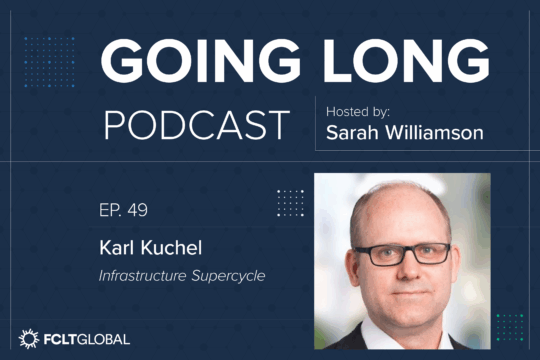
Podcast
15 December 2025 - “Anytime where you have a constrained market, it's good to be a supplier of capacity into that market, which is why you're seeing a lot of investment and construction of data centers even though you've got higher interest costs, higher CapEx costs, higher operating costs, inefficiency in the supply chain.”
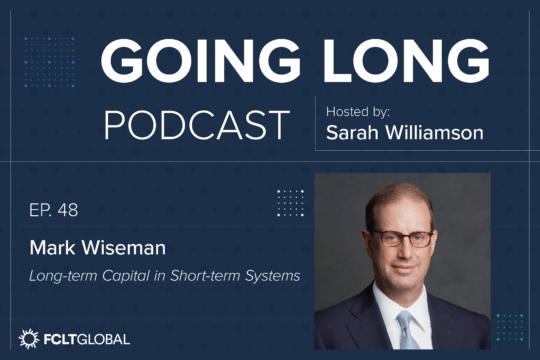
Podcast
1 December 2025 - “In the long run, most of the time, values and value converge… it doesn’t matter much what your political perspective is… it will have an impact on the long-term cash flow potential of an asset.”

Investor-Corporate Engagement | Article
26 November 2025 - Without disciplined capital allocation, buybacks can signal weakness, not strength. According to a recent MarketWatch article, analysts have labeled Apple’s $100 billion announcement “disappointing” — not because it was small, but because it failed to set a new record.

Risk and Resilience | Article
25 November 2025 - Which is worse: missing a major disruption that creates a new long-term equilibrium, or overreacting to a temporary event that soon reverts to prior conditions? Long-term investors dislike feeling exposed, underprepared, or unaware of potential risks. Fortunately, there are steps they can take to prepare their organizations for geopolitical turbulence.
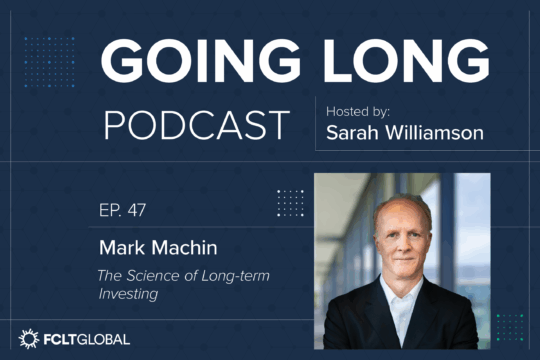
Innovation | Podcast
17 November 2025 - “The scientific method is pretty helpful when you think about investing — the accumulation of knowledge and insight, the fact that nothing’s ever black and white, and that you look at things on a probability-driven basis.”

Earnings Guidance | In the News
22 October 2025 - The legendary GE boss eventually came around to the idea that the focus on short-term results was a harmful distraction.

In the News
7 October 2025 - Financial news of the past two decades is littered with stories of companies delaying IPOs and growing despite it. If they can find success without going public, why should anyone else?

Article
3 October 2025 - Research has consistently shown that the quarterly corporate cycle in the United States drives a myopic focus on meeting short-term targets over sustainable value creation.
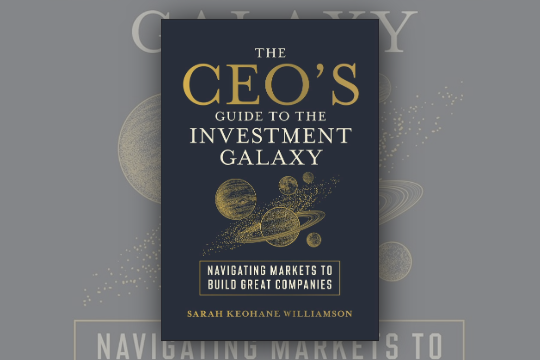
1 October 2025 - Sarah Keohane Williamson's new book provides indispensable insights for business leaders navigating the landscape of the global investment community. Order today.

Press Release
1 October 2025 - FCLTGlobal welcomes its newest board members and strategic advisors - these appointments strengthen our leadership team as we continue mobilizing companies and investors to focus capital on long-term value creation.

Innovation | Article
29 September 2025 - Optimists call it “the fourth industrial revolution.” Skeptics have called it “the end of the human race.” Regardless of where you stand, artificial intelligence is rapidly transforming how companies operate—from efficiency gains to headcount reductions to sweeping changes in capital allocation.
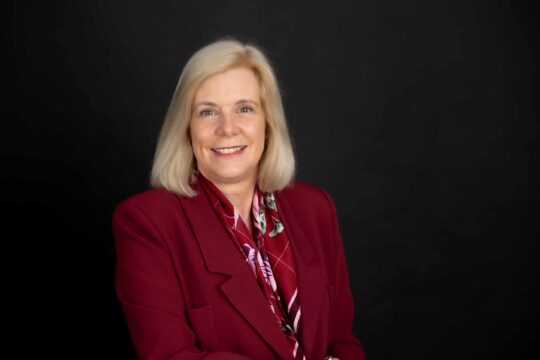
In the News
25 September 2025 - CEO Sarah Wililamson recently went one-on-one with Adam Mendler to discuss her new book, "The CEO’s Guide to the Investment Galaxy: Navigating Markets to Build Great Companies"